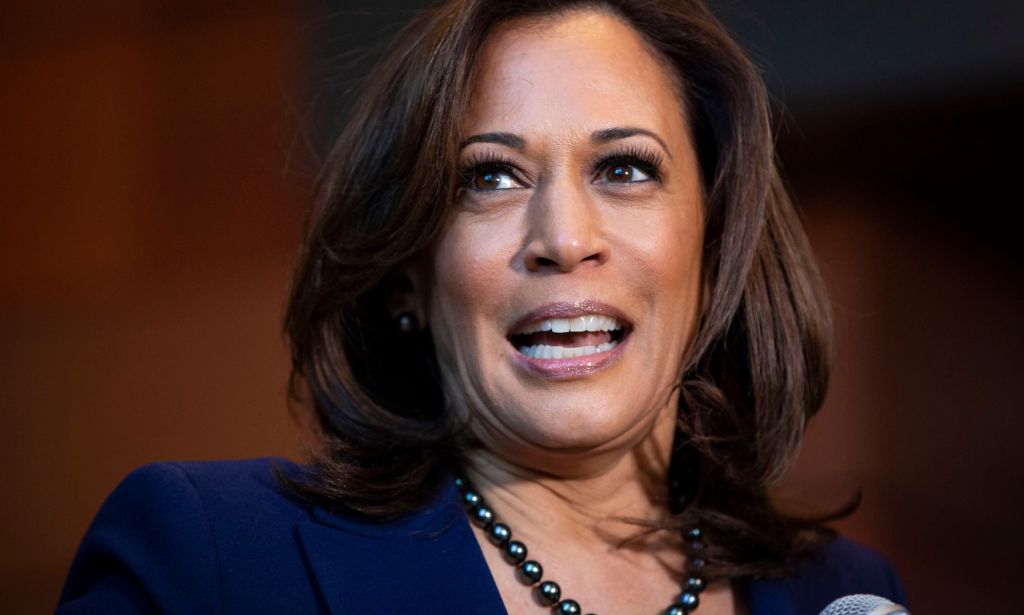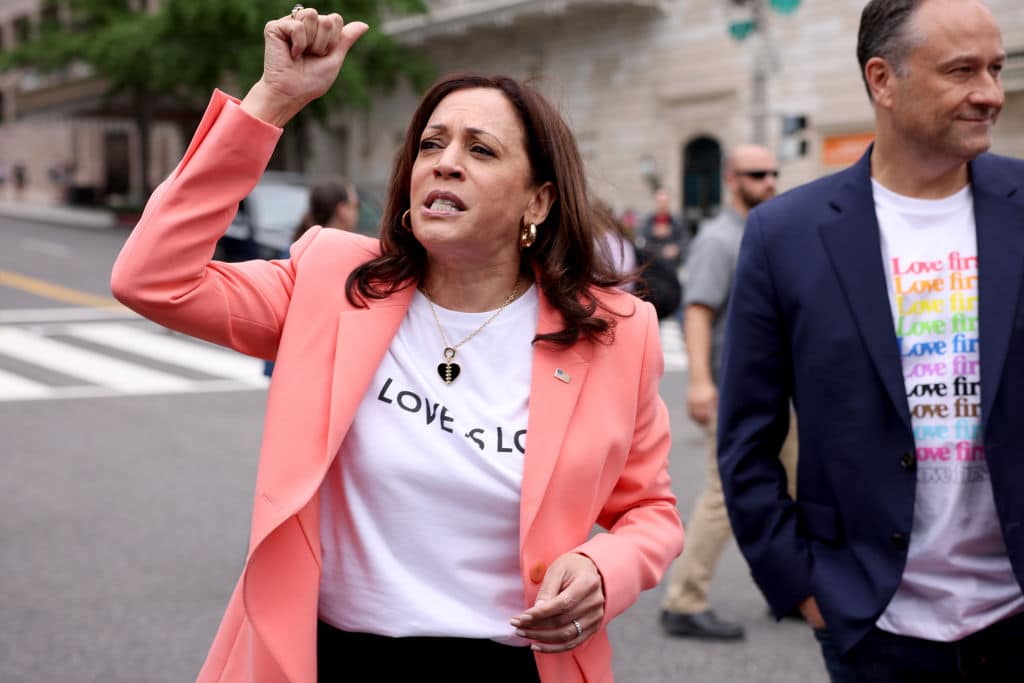Where does Kamala Harris stand on LGBTQ+ rights, and does she support the queer community?
Following president Joe Biden’s decision to not seek re-election, all eyes are firmly on vice-president Kamala Harris and her presidential bid, with many LGBTQ+ people wondering how supportive she is of their rights.
In the wake of continued concerns over his physical health and age, Biden announced on Sunday (21 July) that he would not be seeking a second term in the White House. In a letter on social media, he offered his “full support and endorsement” for Harris to be the Democrats’ nominee to face former president Donald Trump in November.
“It’s time to come together and beat Trump,” he wrote. “Let’s do this.”
In response, Harris said she was “honoured” to have the president’s backing, and intended to “earn and win this nomination”, adding: “I will do everything in my power to unite the Democratic party – and our nation – to defeat Donald Trump and his extreme Project 2025 agenda.”
But what do we know about her when it comes to issues affecting the queer community?
Kamala Harris’ record on LGBTQ+ rights
The good news is that Kamala Harris has a long history of LGBTQ+ advocacy.
Her history with LGBTQ+ activism started in 2003 after she was elected district attorney in San Francisco. The following year, after same-sex marriage was declared legal in the city, Harris was involved in conducting marriages for same-sex couples, which she called “one of the most joyful” moments of her career.
After becoming state attorney general, Harris worked to promote LGBTQ+ rights and marriage equality throughout the Golden State. Alongside governor Jerry Brown, she also opposed Proposition 8, which revoked marriage equality in in 2008.
The battle raged on until 2013, by which point, then president Barack Obama was heavily in favour of codifying LGBTQ+ marriage equality nationwide and would do so just a few years later.
All the while, Harris continued to fight against inequality in all its forms, including the “panic defence” – a still-present law which offers mitigated sentences to people who assault LGBTQ+ victims because of a purported fear upon discovering their sexuality or gender identity.
However, while Harris’ track record spoke for itself, she was on shaky ground with the community during the 2020 presidential election over her history as a prosecutor and what some described as a misstep on trans issues and sex work.

American lawyer and queer rights activist Chase Strangio wrote in 2019 that he was not ready to trust Harris on LGBTQ+ issues because of her work as “an arm of the state fighting to lock people in cages and defending policies that destroyed lives and communities.”
He went on to claim: “Now attempting to position herself as a criminal legal system reformer and an ally to the LGBTQ+ community, Harris seeks to rewrite her past rather than own it.”
Those missteps included her support for a state decision to block gender-affirming medical care for women in prison in 2015. Years later, she claimed the move was approved without her consultation, and that she was forced to defend the state’s decision.
LGBTQ+ sex workers have also harshly criticised Harris for supporting a package of bills in 2018 that would have shut down sites used by sex workers.
Courtney Trouble, a non-binary sex worker, said she felt Harris was “really proud” of the work she had done in supporting the bills, and that was something “that really needs to be discussed with her”, adding: “If that’s how she feels about sex workers’ rights, then she has completely ignored an entire facet of community who could be her supporters.”
Kamala Harris’ time as vice-president

Despite animosity towards Harris as a vice-presidential candidate from sections of the LGBTQ+ community, Harris’ record since 2020 has proved that her politics have shifted in a progressive way.
According to a re-election campaign promoted in April, almost 11,000 LGBTQ+ volunteers played a key role in winning back the White House for the Democrats.
Since winning the election, Biden and Harris have taken several significant steps in codifying, promoting and legislating for the protection of LGBTQ+ people in the US and beyond.
Arguably, the most significant was the effort to repeal the Respect for Marriage Act, a dormant piece of legislation which, if brought back through the Supreme Court, would have repealed same-sex marriage protections in the US. Several Title IX anti-discrimination laws have been passed in recent months, which aim to further protect young transgender people.
Harris has launched several initiatives which promote representation and inclusion in government, while fighting against anti-LGBTQ+ rhetoric.
Last year, during a tour of Africa, she stood in opposition to a law in Uganda which bans openly identifying as LGBTQ+, and in Ghana, she said she felt “very strongly” about supporting the development of queer rights on the continent and that she considers it a “human rights issue”.
Her allyship has afforded her support from human rights groups, LGBTQ+ celebrities and several political figures and pundits.
Recently, Charli XCX publicly shared her support for the VP, saying “Kamala is brat”, with the singer referring to her latest album.
However, as the clock winds down for their administration, many still feel Biden and Harris have work to do, with anti-LGBTQ+ rhetoric still growing in the US and many issues, including book bans and the onslaught of anti-LGBTQ+ bills, still seemingly being left unaddressed.
That said, as yet, no other Democrat has officially announced their intention to seek the nomination by the time the party convention rolls into Chicago next month.
How did this story make you feel?

